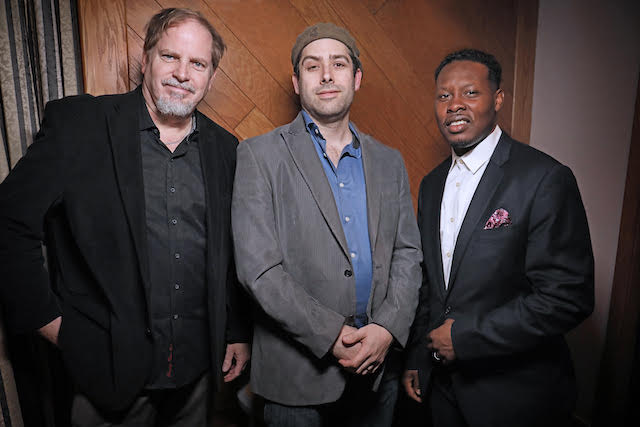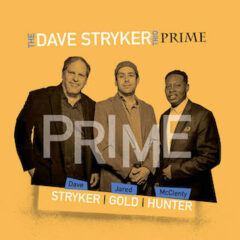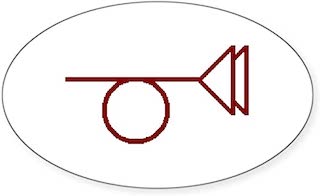
By David McGee
 PRIME
PRIME
Dave Stryker Trio
Strikezone Records
Over the years guitarist Dave Stryker has appeared in a number of incarnations but his newest incarnation—with his own trio—is a first. Hard to say it’s his best incarnation, given the other choices, but it’s definitely one worthy of repeat appearances. And for this we can thank the pandemic.
During the bleak, pre-vaccine days of 2020 Stryker and his veteran compadres—organist Jared Gold, drummer McClanty Hunter—resurfaced from eight months of lockdown in a performance taped and streamed for an audience gathered in an out-of-town venue. Energized by the thought of returning to the studio with his musical mates, Stryker wrote a batch of new songs specifically for his trio. Then he kicked it up a notch with another brainstorm. As he writes in his Prime liner notes: “I decided we would record live in the studio with just one take per song and no overdubbing. The connection, interplay and fire of the group was captured on that day.”
‘Prime,’ the title track from the new album, featuring Dave Stryker (guitar), Jared Gold (organ) and McClanty Hunter (drums)
Stryker isn’t kidding. The nine Prime tracks afford the trio members ample room to make their own statements, engage in scintillating tete-a-tetes with each other and explore the melodic and harmonic possibilities of each tune in a freewheeling manner. Fans of Jimmy Smith and his organ-based jazz trio will hear his ghost floating around all over the place here, as Gold heats up the album opening title track, assumes a more contemplative attack at times on “Lockdown,” hums soothingly behind Stryker’s mellow tone on “Hope” (revisited from Stryker’s 2022 album, As We Are, along with another introspective, late-night blues, “As We Were”) before stepping out for responses alternately tender and aggressive before Stryker returns, as Hunter pushes ahead with a steady pulse on the brushes. Stryker also pays home to his first boss, the late, great jazz organist Jack McDuff, on two tunes: “Mac,” a feisty workout featuring Gold prominently on some McDuff-inspired runs and Stryker countering with a frisky exploration of the melody line’s possibilities, all over Hunter’s skittish propulsion; and the album closing “Dude’s Lounge,” a near-eight-and-a-half-minute workout that rises from a quiet, probing blues statement from Stryker to a strutting, lively blues shuffle featuring Gold and Stryker in full flight dialogue as Hunter again pushes the percussive envelope with his muscular, straight-ahead attack with a minimum of flourishes.
‘Lockdown,’ a Dave Stryker original from the album Prime, with Dave Stryker (guitar), Jared Gold (organ) and McClanty Hunter (drums)
The lone cover here is an inspired choice with an illustrious history. “I Should Care,” co-written in 1944 by Sammy Cahn, arranger Alex Stordahl and composer-arranger-songwriter-pianist-conductor Paul Weston, was first recorded in 1945 by Frank Sinatra and since covered by a Who’s Who of jazz and classic pop greats ranging from Peggy Lee to Dizzy Gillespie to Nat King Cole to Johnny Hartman to Bill Evans to Amy Winehouse, among many others. Stordahl was Sinatra’s first producer-arranger at Columbia Records, the man behind those early classic recordings, whereas Weston had worked with Sinatra when both were in Tommy Dorsey’s employ, before Weston left to join Johnny Mercer’s nascent Capitol Records label as musical director. At Capitol he was reunited with Jo Stafford, whom he had known during the Dorsey years when she was perfecting her craft as a member of the Pied Pipers, the vocal quartet Weston had convinced Dorsey to hire. Stafford and Weston eventually wed and, among other projects, disguised themselves as Jonathan and Darlene Edwards, a purposely awful lounge act, and cut two acclaimed satiric albums, one of which won a 1960 Grammy as Best Comedy Album. Oh, and it was Weston who was instrumental in creating the Grammy Awards in the first place. Not least of all—or perhaps least of all, depending on one’s perspective—Weston is credited as the father of “mood music.”
‘I Should Care,’ written by Sammy Cahn, Alex Stordahl and Paul Weston in 1944, first recorded by Frank Sinatra in 1945, now a jazz standard, performed on Prime by the Dave Stryker Trio (Dave Stryker, guitar; Jared Gold, organ; McClanty Hunter, drums).
Although the Stryker trio begins their take on “I Should Care” in a thoughtful mood, with concise, low-key solos by Stryker (crafting a spell out of octave chords, a la Wes Montgomery) and Gold, the workout steps up in intensity just before the halfway mark as Gold launches the melody out to the far reaches of the organ’s range before Stryker returns with a simmering improvisational sortie before returning to the basic melody line and taking the arrangement home with a flurry. It’s a different take on “mood music,” to be sure, but the entirety of Prime might well be considered mood music of the highest order, with more physicality than the Weston brand but no less virtuosity but more spiritually and intellectually engaging while remaining entirely accessible. Yes, you should care.


